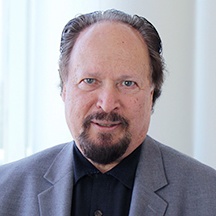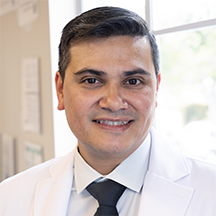
TSH Secreting Adenoma – TSH Tumors
Endoscopic endonasal surgery is first-line treatment for most TSH-secreting adenoma tumors.
Thyrotropin-secreting adenomas (thyrotropinomas) result in excess blood thyroxin levels and are best treated with endoscopic endonasal removal.
Thyrotropin-secreting pituitary adenomas are a relatively rare cause of hyperthyroidism. Such “TSH-omas” account for approximately 1% of all pituitary adenomas. Once the cause of hyperthyroidism is determined to be central (associated with elevated TSH levels produced by a pituitary adenoma), normalization of thyroxin levels is critical prior to patients undergoing pituitary adenoma removal.
Symptoms of TSH-Secreting Adenomas
TSH-secreting adenomas are rare tumors of the pituitary gland that cause excessive production of thyroid-stimulating hormone (TSH in patients). This overproduction affects thyroid function, leading to hyperthyroidism. Common symptoms include unintentional weight loss, rapid heartbeat, and nervousness.
Symptoms:
- Weight Loss: Despite normal or increased appetite.
- Cardiovascular Issues: Rapid heartbeat and palpitations.
- Nervousness and Anxiety: Increased irritability and anxiety levels.
Other symptoms may include sweating, heat intolerance, and muscle weakness. These symptoms result from the thyroid gland being overstimulated by excessive TSH, causing an overproduction of thyroid hormones.
Diagnosis and Treatment:
- Blood Tests: Measure TSH and thyroid hormone levels.
- Imaging: MRI or CT scans to identify the adenoma.
- Treatment Options: Surgery, radiation, or medication to reduce TSH levels and normalize thyroid function.
Treating TSH-Secreting Pituitary Adenomas
First-line treatment of TSH-omas is transsphenoidal tumor removal. Surgery to remove the tumor is typically followed by irradiation in the case of surgical failure. However, medical treatment with somatostatin analogs, such as octreotide and lanreotide, are effective in reducing TSH secretion in more than 90% of cases with consequent normalization of FT4 and FT3 levels and restoration of the euthyroid state.
At Pacific Pituitary Disorders Center, we have one of the world’s largest experiences in endoscopic endonasal transsphenoidal surgery. With cutting-edge technology and instrumentation and proven surgical experience of over 1600 endonasal surgeries, we make pituitary adenoma surgery safer, less invasive and more effective. Center Director and Neurosurgeon Dr. Daniel Kelly and his neurosurgical partner Dr. Garni Barkhoudarian and ENT Surgeon Dr. Chester Griffiths has one of the largest surgical experiences treating patients with pituitary adenomas, including TSH-omas.
Our highly experienced pituitary endocrinologists, Drs. Pejman Cohan and Sarah Rettinger can provide medical treatment of TSH-omas, typically with somatostatin analogs such as octreotide or lanreotide. For patients with TSH-omas that cannot be completely removed with endoscopic surgery or controlled with medications, our outstanding radiation oncologists can deliver focused radiosurgery or radiotherapy to tumors to help halt adenoma growth and normalize thyroxin levels.
Doctors and Specialists Who Treat TSH-Secreting Adenoma
Useful Links
- Pituitary adenoma publications
- Pituitary video library
- Pituitary adenoma videos
- Articles about pituitary disorders












